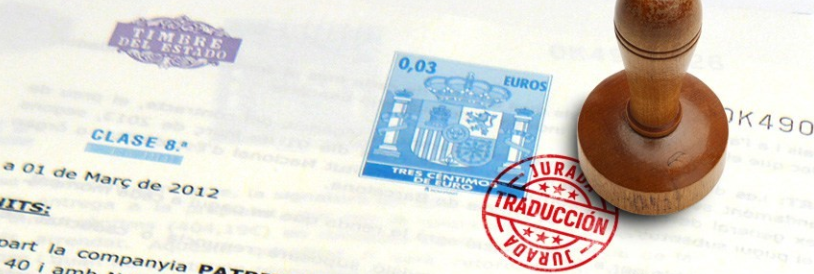A certified translation, also known as an official or sworn translation, falls into a special category of translations that holds legal validity before official bodies and authorities. It is characterized by being carried out by a sworn translator, who has been officially authorized by the Ministry of Foreign Affairs to certify the accuracy and faithfulness of the translation through their signature and seal.

Distinctive Characteristics
A certified translation has specific conditions that distinguish it from regular translations. First, it must include the signature and seal of the sworn translator, along with the appropriate certification confirming the accuracy of the translation in relation to the original text. You must number and seal each page to prevent any alterations or manipulations later on.
The certified translation follows a specific format, part of which includes the translator’s declaration, which attests to the authenticity of the translation. It is also important to mention any peculiarities of the original document, such as crossings out, stamps, or signatures, to ensure the translated document accurately reflects the original.
Situations in Which a Certified Translation is Required
Certified translations are required in various areas where the legal validity of a translated document is essential.
Academic Procedures
Certified translations are necessary for individuals wishing to study or work in another country. Common documents that require certified translations include university degrees, transcripts, academic records, study programs, and diplomas from all education levels. These documents are essential for validating and standardizing academic studies abroad.
Personal Documents
Certified translations of personal documents are often required in various situations. The most common documents include birth, marriage, and death certificates, along with identity documents, passports, and criminal records. Authorities frequently require these documents for administrative procedures or immigration-related tasks.
Legal Documents
Certified translations of legal documents are crucial for the proper submission of international contracts, powers of attorney, court rulings, commercial documents, and public deeds. You must translate all documents with absolute accuracy, as any errors could negatively impact their legal interpretation.
Immigration Procedures
Certified translations of visa applications, residence permits, documents for family reunification, nationality certificates, and employment records for foreigners are necessary for acceptance by immigration authorities.
Process of Obtaining a Certified Translation
Choosing the Translator
To ensure the legal validity of a certified translation, it is crucial to select a sworn translator who is officially recognized. It is necessary to verify that the translator holds the required credentials, as well as ensure they have experience in translating the type of document you wish to translate. Additionally, confirm that the translator works in the relevant language pair, such as Spanish and English or Spanish and French.
Submitting Documents
The process begins with the submission of the original documents or certified copies, depending on the required format and any additional documentation. It is advisable to specify the intended use of the translation and the country where you will use it, as some countries have specific requirements for the effect of these documents.
Importance and Validity of Certified Translations
Legal Validity
Public institutions and courts formally recognize certified translations, accepting them in many countries without further validation, depending on international agreements.
Guarantees Provided by a Certified Translation
The main guarantee of a certified translation is its faithfulness to the original text. The sworn translator legally guarantees the accuracy of the content, ensuring traceability and legal security for formal document use.
Important Considerations
Delivery Deadlines
Unlike regular translations, certified translations typically require more time due to the certification and sealing processes. It is important to consider the possibility of urgent deadlines. Additionally, follow-up procedures such as legalization or apostille may be required after the translation.
Associated Costs
The cost of certified translations is generally higher than that of regular translations due to their official nature. In some countries, the pricing is regulated, while in others, it is market-driven. Prices may increase for urgent work or if additional documents need to be translated.
Recommendations for Requesting a Certified Translation
Before Requesting the Translation
It is advisable to check whether a certified translation is truly necessary, consult the specific requirements of the receiving institution, verify that the original documents are in order, and inquire about costs and deadlines in advance.
During the Translation Process
Provide all necessary documentation, maintain clear communication with the translator, specify any special requirements, and check the delivery deadlines to avoid unnecessary delays.
Legal Aspects of Certified Translations
Regulatory Framework
Certified translation regulations vary by country, each setting its own requirements for sworn translators and document formatting. International agreements may also govern the recognition of certified translations in other countries.
Responsibilities of the Parties Involved
Certified translations involve various responsibilities. The sworn translator ensures the document’s accuracy and formality. The requester submits the documents in the correct format, and receiving institutions clearly specify the standards they require for accepting certified translations. In case of discrepancies, the parties can apply legal mechanisms to resolve conflicts.
Conclusion
Certified translation is essential in a globalized world. It guarantees the legal validity of documents presented before official authorities, and its acceptance depends on compliance with regulations, the certification of translators, good planning, and control over quality and legal security in international procedures.




